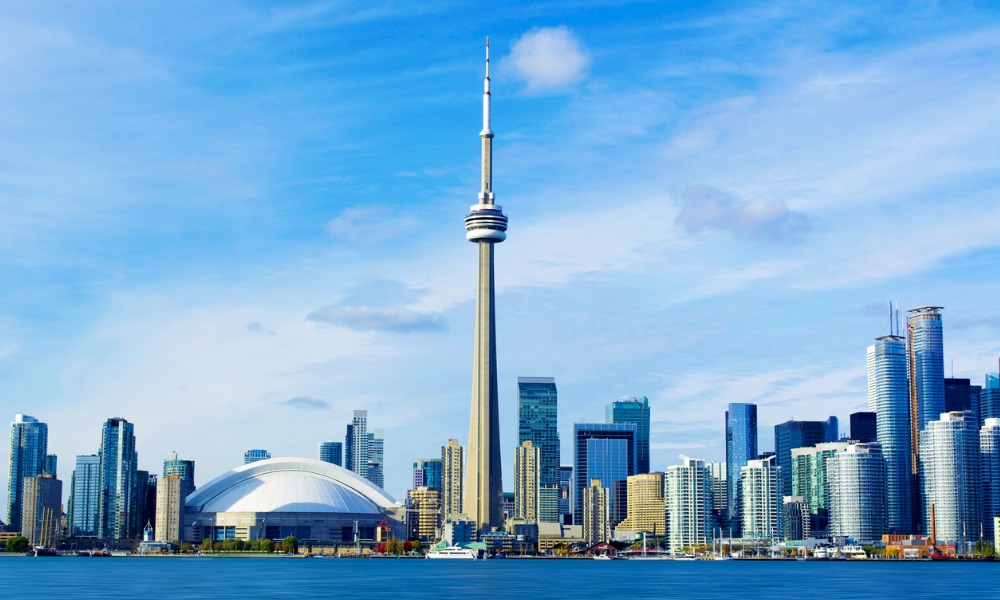
Union also unhappy with Doug Ford’s accelerated expansion of alcohol sales at grocery stores

About a week and a half since workers at the Liquor Control Board of Ontario (LCBO) declared their first strike in history, businesses in the province are already hurting, according to a report.
The LCBO strike is affecting the operations of 35% of respondents, with food and beverage (60%), Northern resource-based tourism (71%), and culinary tourism (50%) sectors reporting the greatest impact to business operations, reports the Tourism Industry Association of Ontario (TIAO).
“The disruption to the supply chain is impacting a large percentage of tourism businesses that sell alcohol as part of the visitor experience – from restaurants and bars to culinary tourism, to hunting and fishing lodges in Northern Ontario,” said Andrew Siegwart, president and CEO of TIAO.
“Tourism businesses are not able to put forward the best visitor experience during the height of the season. And although we are seeing an uptick in direct retail sales at our craft breweries, wineries, cideries, and distilleries as a result of the strike, these businesses are also losing substantial sales through their LCBO channels. Those lost sales ultimately affect their bottom line and potentially their current and future capacity to offer compelling on-site visitor experiences.”
According to the group, the common challenges reported include:
More than 9,000 LCBO workers started their strike action as of 12:01 am on July 5.
With the summer season being a peak period of visitation for the tourism industry, TIAO is concerned about worsening impacts to the small businesses that make up 90% of the industry.
Now, the group wants LCBO, the provincial government, and striking workers to continue negotiating to reach a swift resolution to the ongoing labour dispute.
“While the LCBO will be re-allocating personnel to better support businesses in accessing the products they need, TIAO is urging all parties to continue negotiations and come to a resolution to end the labour dispute,” said Siegwart.
Meanwhile, the Ontario Public Service Employees Union (OPSEU/SEFPO) – which represents LCBO workers – is accusing the Ford government of sabotaging bargaining that could put an end to the workers’ strike.
"Instead of bargaining in good faith with the union and revisiting public policy that's flat-out bad for Ontario, Doug Ford is only focused on pushing his harmful agenda – he can't be trusted," said Colleen MacLeod, chair of the bargaining team for the union.
On Sunday, the LCBO announced that it was reversing its decision to try and open select stores three days per week, saying that all stores will now remain closed for the duration of the strike.
On Monday, Ford announced the accelerated expansion of alcohol sales at grocery stores. Licensed grocery stores will be able to order ready-to-drink beverages and large beer pack sizes starting Thursday, July 18, 2024, and begin selling them immediately upon arrival. The new timeline accelerates the first phase of the Ontario government’s plan to expand alcohol sales to grocery, convenience and big-box stores by allowing the 450 grocery stores that are currently licensed to sell beer, cider or wine to sell them once they arrive in store, rather than Aug. 1, said the government.
Ford's rush to put booze everywhere will cost upwards of $1 billion, according to the union, also criticizing the timing of the announcement.
"Ford is clearly trying to deliver on a promise he made to prospective corporate donors from the convenience and grocery industries during the elections. Doug Ford should stop playing politics with the lives of our members and taxpayers' money," said OPSEU/SEFPO President JP Hornick.
The union earlier got a 97% in favour of strike action during the strike vote.